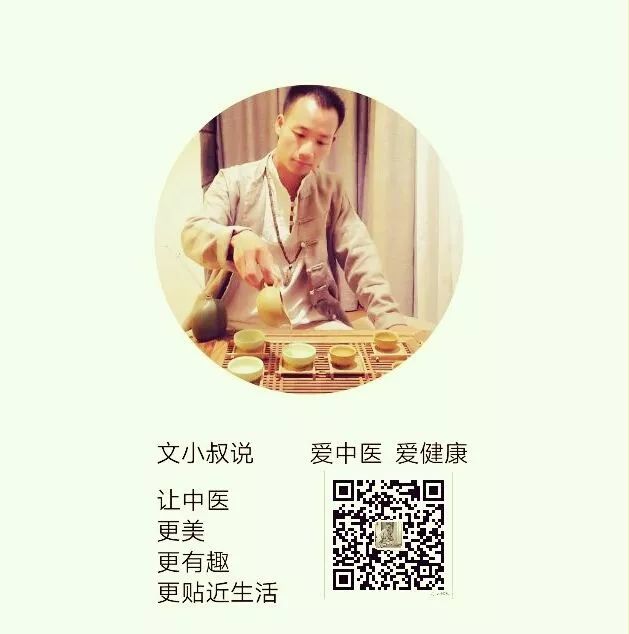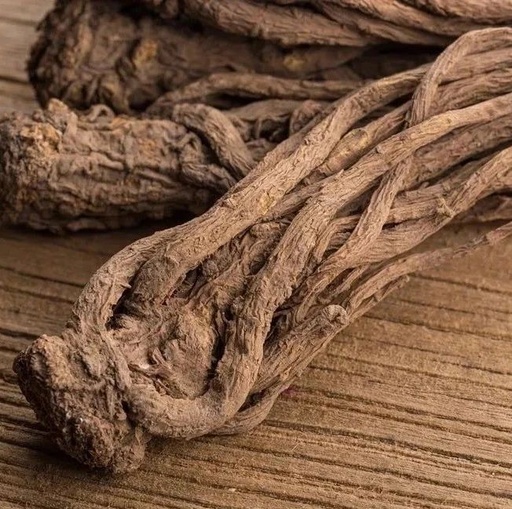Wen Xiaoshu says making Traditional Chinese Medicine (TCM) more beautiful, interesting, and closer to life.
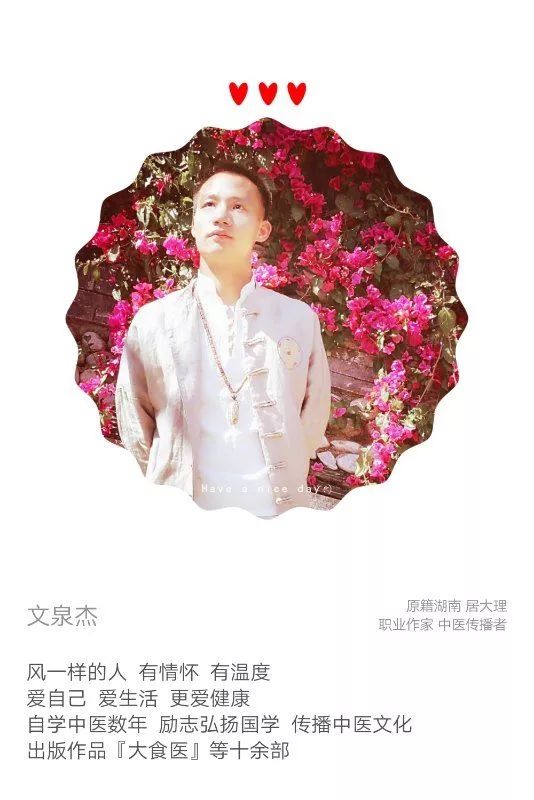
Today, Sister Maomao will talk about a herb that is very common in gynecological formulas. It is no exaggeration to say that 10 out of 8 formulas use it, so it is truly deserving of the title “the Sacred Herb for Women’s Health.”
Can you guess what herb Sister Maomao is going to talk about? This herb is calledDang Gui (Angelica Sinensis).
The name Dang Gui is also very interesting, as it implies returning to the right place. Some believe that “Dang Gui can regulate qi and nourish blood, allowing qi and blood to return to their rightful places, hence the name Dang Gui.”
Li Shizhen in theCompendium of Materia Medica said: “In ancient times, when a man married, he needed to continue the lineage, and Dang Gui is a vital herb for women to regulate blood, reflecting the longing for a husband, hence the name Dang Gui.” This meaning is reflected in the Tang poem “Huma is easy to plant but no one plants it, just at the time of return yet not returning.”
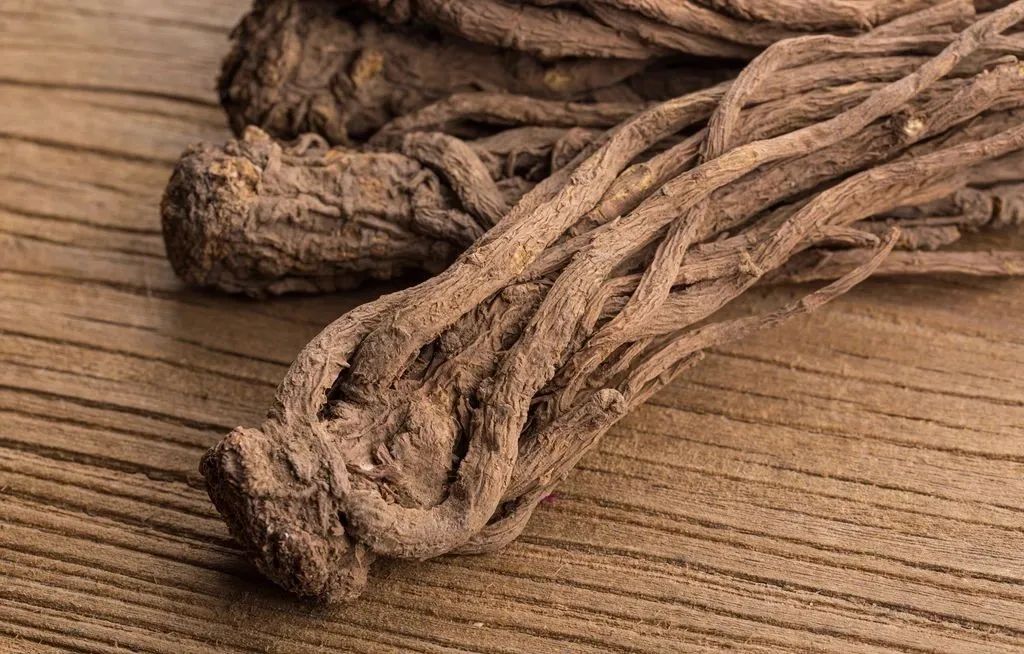
Image | Internet
There is actually a very interesting story about the name Dang Gui.
It is said that by the Holy Mother Spring near the Qutang Gorge, many precious medicinal materials grow, but due to the presence of poisonous snakes, no one dares to pick them. A brave young man, wanting to support his family, bid farewell to his wife and mother and went into the mountains to gather herbs.
Before leaving, he left a message for his wife: “If I do not return in a year, then after three years, you may remarry!”
In a blink of an eye, three years had passed. His wife, who was anxiously waiting, became worried and suffered from severe gynecological issues due to her anxiety and blood deficiency. Thinking that her husband must have met with misfortune after three years of absence, she reluctantly remarried.
Unexpectedly, shortly after she remarried, the young man returned home. Upon learning that his wife had remarried, he regretted not returning on time. He asked someone to arrange a meeting with his ex-wife, and when they met, she said to him: “Three years of your promised return, yet you did not come back, my heart is like a knife, filled with resentment and regret!”
The young man, knowing that his ex-wife was suffering from gynecological diseases, sent her a package of medicinal herbs through a neighbor, instructing her to take them regularly.
His ex-wife, who was already exhausted from her illness, felt regret upon learning that her former husband had returned safely. Thinking she would just take the herbs to end her life, she casually prepared the herbs he sent and consumed them, unexpectedly finding that not only did she not get poisoned, but her illness was cured.
To remember the lesson of the young man’s failure to return, people named this herb “Dang Gui.” Since then, Dang Gui has also represented a sense of longing and concern.
Dang Gui has a long history of medicinal use. In theShennong Bencao Jing, it is classified as a middle-grade herb, which is used to treat diseases and regulate the constitution of patients, indicating thatits medicinal effects are very powerful and can treat conditions of qi and blood imbalance.
The Bencao Zheng states, “Dang Gui has a sweet and heavy flavor, thus it specializes in nourishing blood; its qi is light and pungent, hence it can also promote blood circulation. It combines nourishment with movement, truly a sacred herb for blood.”
What specific effects does Dang Gui have? Next, Sister Maomao will share them one by one.
1. Dang Gui can nourish blood
There is a saying, “In blood tonics, Dang Gui cannot be omitted,” which indicates that Dang Gui is essential in blood-nourishing formulas, highlighting its powerful blood-nourishing effects.
Why does Dang Gui have the effect of nourishing blood?
Zhang Xichun once said that Dang Gui is “thick and sweet,” which can internally moisten the organs. This indicates that Dang Gui can nourish blood because of its moistening quality. Observing Dang Gui slices closely, they indeed have a moist texture.
Moist substances are similar to the nature of blood, allowing them to exert a moistening effect. Moreover, Dang Gui is reddish-brown, and red is the color of blood; thus, red can enter the blood, which is why Dang Gui can nourish blood.
A famous physician from the Republic of China, Zhang Xichun, had a case where he used Dang Gui to treat a woman with menstrual irregularities.
A woman who was relatively weak had decreasing menstrual flow, eventually only having a symbolic amount, so she sought Zhang Xichun’s help.
At that time, Zhang Xichun was very young and felt his medical skills were inadequate, so he hesitated to prescribe her a formula. Instead, he suggested that she boil 24 grams of Dang Gui in water daily.
Unexpectedly, after a period, the woman’s menstrual issues were completely resolved, which astonished Zhang Xichun and made him appreciate the powerful blood-nourishing effects of Dang Gui.
People with blood deficiency often experience dizziness, palpitations, scanty menstruation, and cold hands and feet. They can use 20 grams of Dang Gui boiled in water.
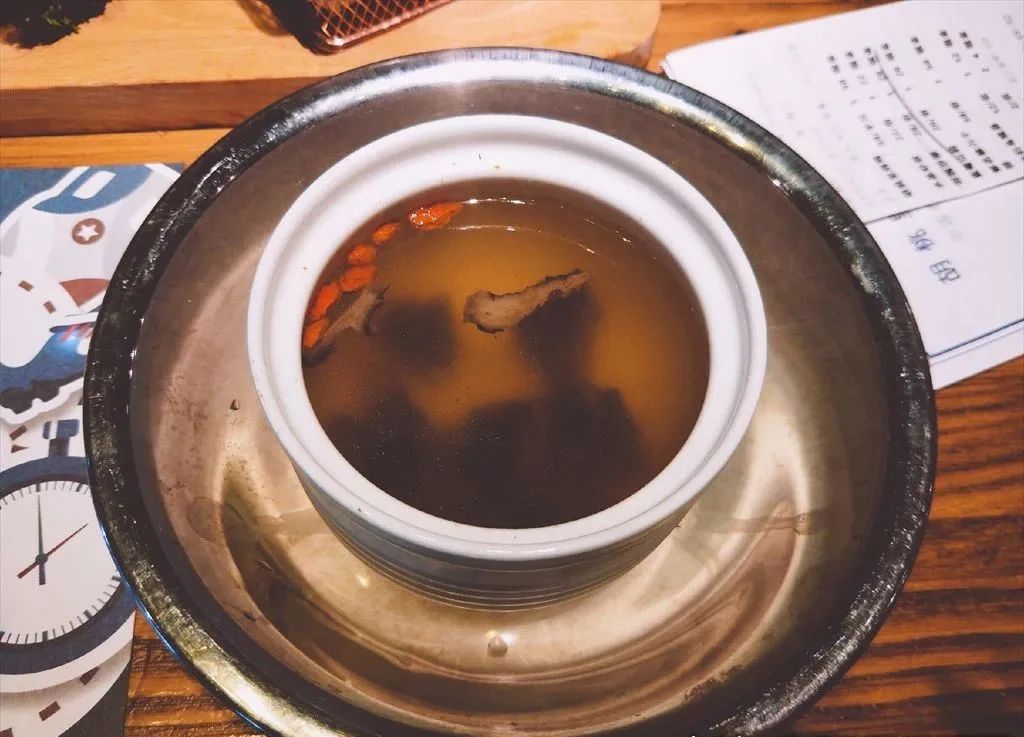
Image | Internet
2. Dang Gui can invigorate blood circulation
In addition to nourishing blood, Dang Gui can also promote blood circulation. This is because Dang Gui has a pungent flavor, which can move qi and accelerate its flow; when qi moves, blood moves as well. Thus, Dang Gui nourishes blood without causing stagnation, nourishing while promoting movement.
When mentioning the blood-invigorating effects of Dang Gui, one must mention its ability to remove spots. The famous blood-invigorating and spot-removing formula, Peach Blossom Four Substance Decoction, contains Dang Gui.
Many people do not understand the relationship between spots and blood stasis. Although spots on the face seem to be superficial, they are closely related to the state of qi and blood circulation within the body. If qi and blood do not circulate smoothly, blood stasis will form, and the accumulation of blood stasis will lead to spots.
Currently, many beauty salons offer spot removal treatments, such as laser and electrical therapy, but these only address the symptoms without treating the root cause, and may even worsen the condition. It is like trying to clean the surface of a cup that has dirt inside; merely wiping the surface will not help.
How to remove spots? First, the blood stasis must be resolved. How to resolve blood stasis? By nourishing blood! Increasing the amount of blood in the body is like increasing the water in a river, which will wash away the silt in the riverbed.
Since Dang Gui can both nourish and invigorate blood, its spot-removing effect is well-deserved.
Women with blood stasis and spots on their faces can use Dang Gui during their menstrual period to invigorate blood and resolve stasis. They can boil 10 grams of Dang Gui in water during their menstrual period, suitable for those with scanty menstruation, but not for those with heavy menstruation.
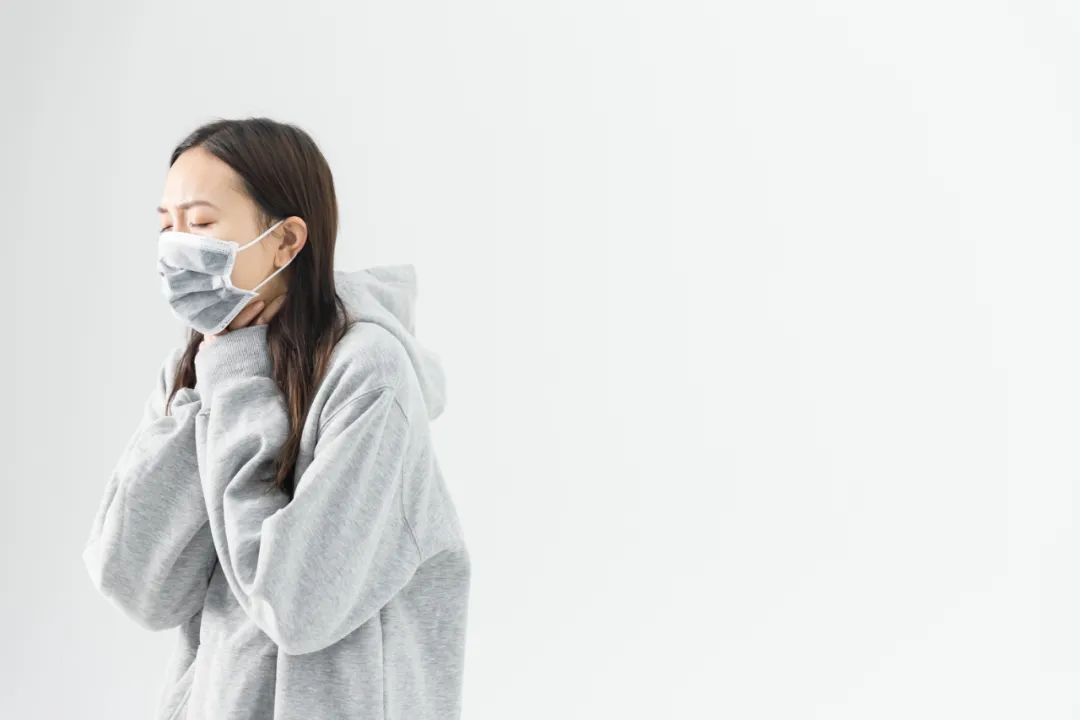
Image | Internet
3. Dang Gui can relieve cough
In historical materia medica texts, most mention Dang Gui as a blood-nourishing herb, with effects on nourishing blood, invigorating blood, and moistening the intestines. Very few mention thatDang Gui also has the effect of treating cough.
However, in theShennong Bencao Jing, it is recorded that “Dang Gui is used for cough and reversed qi.” TheBencao Huibian also states that cough is caused by the imbalance of qi in the chest, leading to lung qi rising. Dang Gui, with its pungent flavor, can regulate qi, being a qi herb in the blood, allowing lung qi to descend. Moreover, cough is often due to yin deficiency and lack of support for yang. Dang Gui can nourish blood, which is yin, thus it can nourish yin and help descend the qi, stopping the cough.
Dang Gui is particularly suitable for severe nighttime coughs. For coughs due to external wind-cold, it can be combined with Xiao Qing Long Tang (Minor Blue Dragon Decoction) to dispel wind and cold and relieve cough; for coughs due to external wind-heat, it can be added to Sang Ju Yin (Mulberry Leaf and Chrysanthemum Decoction) to disperse wind and heat, harmonize the nutrients, and relieve muscle tension; for phlegm-damp coughs, it can be used with Er Chen Tang (Two Aged Decoction) to transform phlegm and relieve cough. Generally, the dosage of Dang Gui is 10-15 grams.
Modern research reports that using Dang Gui to treat chronic bronchitis can involve injecting Dang Gui solution into acupuncture points such as Shanzhong, Feishu, Dingchuan, and Kongzui. Each injection is 0.5 to 1 ml per point. After inserting the needle (about 1.5 cm deep), gently move the needle and lightly lift it to create a sensation of soreness and distension, then slowly inject the solution. Since Dang Gui can improve lung circulation and restore elasticity, it has the effect of alleviating cough and wheezing.
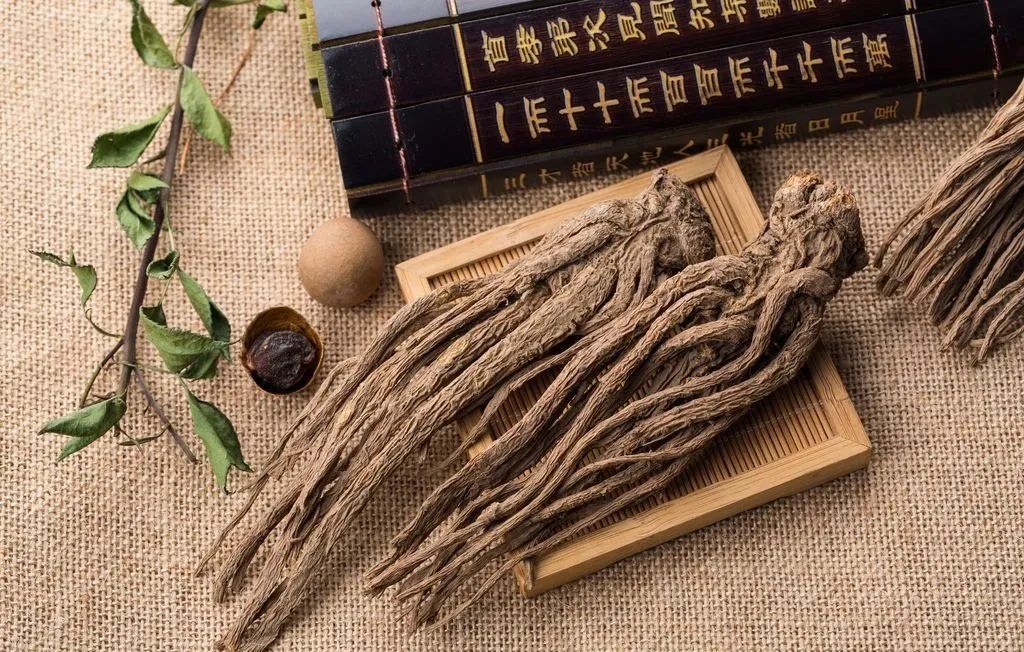
Image | Internet
4. Dang Gui can moisten the intestines
Many new mothers have a difficult-to-speak issue: constipation. If they also have hemorrhoids, the experience can be quite painful.
After giving birth, mothers need to breastfeed, and they are afraid to take laxatives, fearing that it will cause diarrhea in the baby or affect milk production. However, constipation is very uncomfortable, and eating more fruits and vegetables does not help, leading to frustration.
Why do postpartum women experience constipation? This is because they lose a lot of blood during childbirth, and blood deficiency can easily lead to constipation.
If we compare the intestines to a river, when there is little water in the river, it is difficult for boats to navigate. Similarly, if the body lacks fluids, it becomes difficult for stool to pass through the intestines, leading to constipation.
How to treat constipation caused by blood deficiency? It’s simple: nourish the blood.
The famous physician Miao Xiyong from the Ming Dynasty skillfully used Dang Gui to treat constipation in new mothers because Dang Gui can nourish blood and has a moist texture, making it suitable for blood-deficient constipation.
Many elderly people also suffer from chronic constipation due to blood deficiency. Dang Gui, with its moist texture and high oil content, can increase the lubrication of the intestinal wall, nourishing blood and moistening the intestines to relieve constipation, especially suitable for elderly individuals.
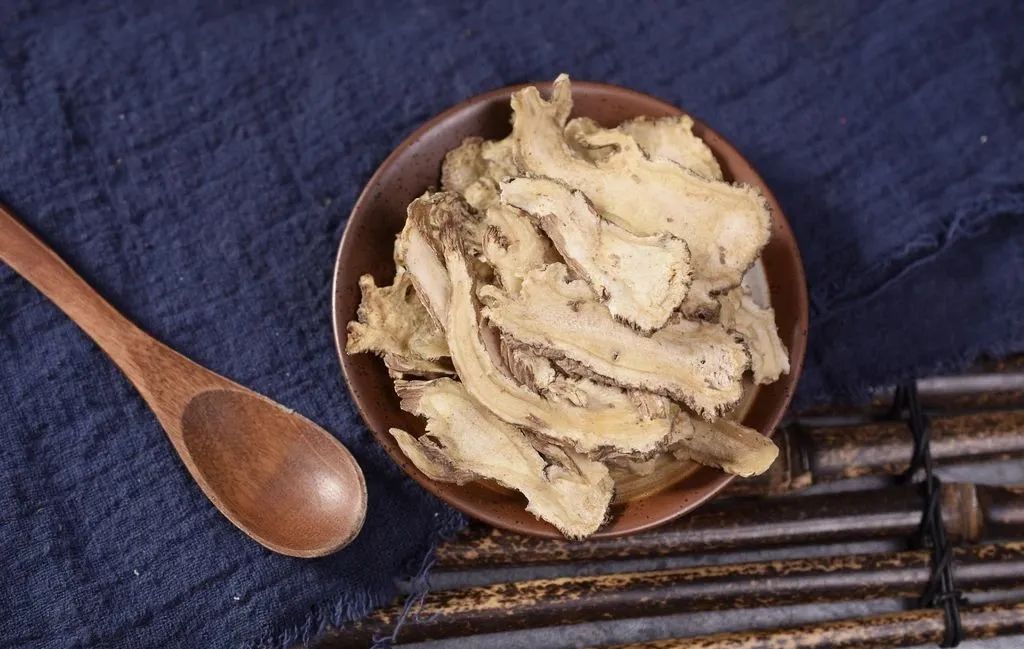
Image | Internet
If using a single herb to treat blood-deficient constipation, a large amount of Dang Gui is needed, over 50 grams, to achieve a good therapeutic effect.
So, who should not use Dang Gui?
Dang Gui has a slightly dry and intense property, so those with yin deficiency and heat should be cautious when using Dang Gui, and it is essential to combine it with other herbs to mitigate its drying properties; otherwise, the user may experience symptoms of heat.Yin deficiency is characterized by internal heat, with symptoms including dry mouth, dry tongue, dry eyes, five hearts heat, and soreness in the lower back and knees.
Special reminder: A beautiful day begins! I hope Xiaoshu’s article brings you a good mood for the day. If you like the article, don’t forget toclick the “See” button at the bottom right of the article or share it with your friends! Xiaoshu’s shared formulas should be taken under the guidance of a physician, and the consequences are at your own risk. Due to limited energy and ability, I cannot reply to all comments, please forgive me. May you become your own divine doctor.
Here comes the benefit!: Open the public account dialogue box and enter “menstrual irregularities,” “cold,” “hair loss,” “cold hands and feet,” “stomach pain,” “liver qi stagnation,” “injured essence,” “upper heat and lower cold,” “spleen and stomach,” “insomnia,” “dampness removal,” “qi and blood,” “weight loss,” “constipation,” “diarrhea,” “kidney deficiency,” “acne,” “cough,” “nasal inflammation,” “cervical spine,” “depression” to obtain corresponding conditioning formulas.
